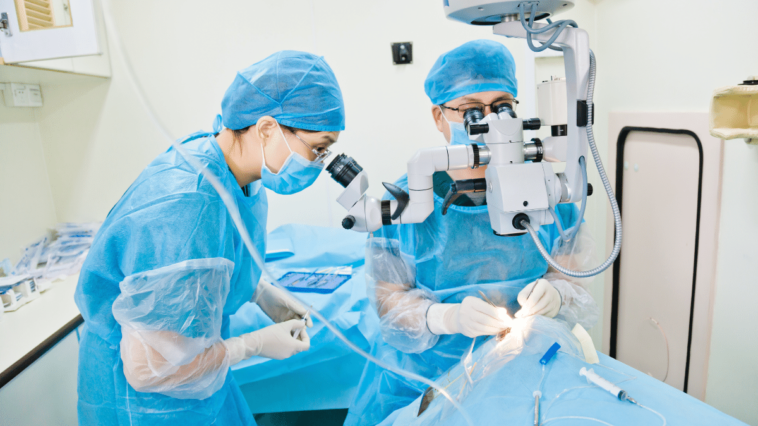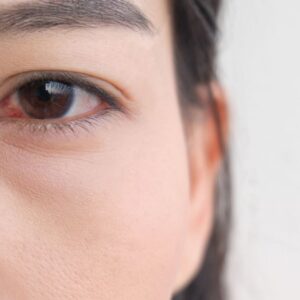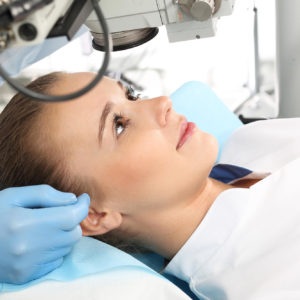If you or someone you know is looking for information about cataract surgery then you are in the right place! For starters, cataract surgery is a procedure that involves removing the lens of your eyes and replacing it with an artificial one. You might be having a clouding vision due to the cataract. Now, after the cataract surgery, you can expect better vision!
Cataract surgery is a common procedure and is performed by an ophthalmologist, an eye doctor.
Let’s dig in for more information.
Why it’s done?
When a cataract is affecting your vision and you are not able to perform the daily activities, your doctor would advise cataract surgery. It’s to treat cataracts. Your doctor would suggest cataract surgery when the cataract is interfering with other eye problems and making it difficult for the doctor to examine your eyes.
It’s possible that you can wait for the cataract surgery. Thus, for some people, it is possible to consider the options! You can avoid cataract surgery for many years if your vision is good and you can perform your daily activities without much trouble. However, it is always better to ask your doctor what would be the most viable option for you! There is tons of information available online in the form of articles and tutorials, but you have to see what’s best for you.
You might be confused as to whether to consider cataract surgery or not! You might be looking for solutions. If so, you can ask the following questions to yourself:
Is your vision clear and can you safely drive?
Can you easily do your job?
Does it bother to read or watch TV?
Do you find it tough to do daily chores?
Do you find it tough to manage simple activities?
Do you find it tough to see in the bright lights?
Is your vision making it hard to use smartphones?
Ask these questions to yourself and you would know where you stand! At least to some extent. It’s always better to choose the best for yourself.
Cataract Surgery Side Effects
You might be thinking about the possible side effects of cataract surgery. Usually, it’s possible to successfully treat the complications if any. Although, it’s quite uncommon.
The possible side effects include:
The artificial lens might dislocate.
There could be droopy eyelids.
There are chances of inflammation, swelling, and bleeding.
There is a chance of infection.
Retinal detachment is possible.
There could be even a loss of vision.
There is a chance of a secondary cataract.
Glaucoma is another side effect.
You need to keep in mind that you should discuss your situation with your doctor. There is a chance of complications if you have underlying eye damage. It’s always better to get a thorough eye exam before you get any such issue! It’s always better to be on the safe side and rule out the possibility of anything affecting your eyes.
How do you Prepare?
Now you might be wondering how to prepare for cataract surgery.
Consider the following:
- Food and medications
If you plan on going ahead with the cataract surgery then you would be advised not to eat or drink anything 12 hours before your surgery!
Plus, you’ve to stop taking the medications that might increase the risk of bleeding. You have to let your doctor know about the medications that you are taking!
Plus, you might need to use the antibiotic eye drops before the surgery. You might use it for a day or two depending on what your doctor recommends.
It’s always better to consult your doctor and ask all the questions you have in mind. If there is a certain medicine you are using, you should let your doctor know about it. Plus, also let the doctor know about any other underlying medical condition.
- Other precautions
After the cataract surgery, you can’t drive so it would be better if someone can pick you up. During the day of your surgery, you might drive to the hospital yourself, but after the procedure, you might need some help.
The doctor might advise you to not do any heavy lifting or bending for up to a week. Plus, it would be better if you plan on taking some time off from your work so that you can give some rest to your eyes. Your vision and your eyes are precious so bear that in mind.
It would be best if you can arrange for house help! You might be the one doing all the chores in the house. It would be wise to ask someone to help you after the surgery. If you have kids or pets then it would be even more important. You don’t want to push yourself too hard after the cataract surgery. Even though it’s considered a common surgery, it still requires healing. So you should give time to yourself.
Don’t forget to take good care of yourself or of someone who has the surgery! If someone in your family is getting such a surgery, you can offer some help. It’s good to help someone live a better life. You can do their small tasks or pick and drop them from the hospital!
What You Can Expect?
Let’s discuss what you can expect before the procedure, during the procedure, and after the procedure. Naturally, you might be feeling uneasy as it’s still surgery. Plus, it involves your eyes so you might be worried about your vision. However, if you can discuss your worries with your doctor and you already know what to expect then it would become a lot easier to manage your situation.
1.Before the Procedure
To determine what type of intraocular lens (IOL), a lens transplant would be suitable for you, your doctor would examine your eyes through a painless ultrasound test. The purpose of the test is to get the measurements for the shape and size of your eye. Your doctor wants to know what would be best for you.
If you or anyone expects cataract surgery, you would be getting an IOL that would play a role in improving your vision. An amazing thing about this lens is that it can become a permanent part of your eye and the light can focus better at the back of your eye. Plus, you need not worry about any hassle with this artificial lens.
Depending on your preferences and other factors, you can discuss with your doctor what type of IOL would be the most viable option for you.
IOLs can be made of:
- Plastic
- Acrylic
- Silicone
There are different types of lenses and you can discuss with your doctor what would be suitable for you.
For example:
- If you are interested in the lens for single focus strength, you can consider fixed-focus mono-focal. It would be suitable for distance vision, but reading glasses would still be required.
- If you are getting the lens for single focus strength, but that can respond to eye muscle movements then you can consider accommodating-focus mono-focal.
- The lenses with different focusing strengths would be multifocal.
- You can get a toric lens for astigmatism correction.
2.During the Procedure
You can expect the procedure to last for an hour or less. It’s an outpatient procedure. It means that the patient is not required to stay at the hospital after the surgery. Usually, when people would hear the term surgery, they might think about the hospital stay, but here it’s not the case unless your doctor suggests something.
You can expect local anesthesia and possibly a sedative. Your doctor would dilate the pupils using the eye drops. When the pupils are dilated it would make it easier for the doctor to go ahead and perform the procedure.
Either the cloudy lens is removed to implant an artificial one or the cataract is removed without the need for an implant. Your doctor would know what’s best for you and thus, all you have to do is find a suitable eye doctor. Make sure you get the one that you trust and is renowned in the relevant field.
The possible surgical procedures that the eye surgeon may use include:
Phacoemulsification and involves tiny incisions of the cornea and stitches might be used. The procedure is performed in such a way that the lens capsule is left intact in your eyes. An ultrasound probe is used.
Extracapsular cataract extraction is another procedure. However, in this one, the incision might be larger. Since it’s a large incision, stitches would be required. This procedure would be suitable if there are eye complications. This procedure is less frequently used. In this procedure, the surgeon would be using surgical tools. In this procedure, the eye doctor removes the cloudy lens and the front capsule of the lens.
No matter what procedure the eye surgeon is using, the artificial lens is implanted in the empty lens capsule of your eyes. It’s better if you ask your doctor to make things sound easy for you! For some people, it’s hard to understand medical jargon.
3. After the Procedure
Initially, your vision might be blurry. However, as time would pass and your eyes would begin to heal then you are likely to notice a difference.
It’s possible that things would appear brighter as your vision is now through a clear lens.
Your doctor would be seeing you after the surgery to monitor the healing. You can expect the appointment a day or two after your surgery. Then you would be seeing the doctor after a week. Finally, you would be seeing your doctor after a month.
Your eye doctor might advise you to wear an eye patch after the surgery for a few days and especially on the day of your surgery. You might be prescribed medications or eye drops after the surgery.
It’s important that you are taking good care of your eyes after the surgery. So if you feel like itching or anything it’s important that you gently treat your eyes. It’s okay to feel a little discomfort. After all, you have been through a procedure. In 2 months, you can expect complete healing.
However, you need to know what’s normal and what’s not. You have to call your eye doctor immediately in case of the following:
If there is vision loss, contact the doctor immediately.
If you think there is a swelling in the eyelid.
If you see light flashes.
If you experience many new eye floaters.
Your eyes are too red.
There is pain that doesn’t go away even with the use of the medicines.
If you need the reading glasses, your ophthalmologist would suggest when to get the final prescription as your eyes would require time to heal. With cataracts in both eyes, you have to wait for the second surgery until you recover from the first surgery.
Results
Usually, you can expect the cataract surgery to be a success and it helps in restoring the vision that was cloudy before. However, you need to keep in mind that it’s possible to develop a secondary cataract.
Posterior Capsule Opacification (PCO) is the medical term for the complication. The solution for it is yttrium-aluminum-garnet (YAG) laser capsulotomy. If you get this procedure, the possible complication is increased eye pressure and retinal detachment.
What if My Vision Gets Cloudy After Cataract Surgery?
It’s possible that even after the cataract surgery, your vision is cloudy again. The lens capsule may begin to thicken up.
However, you may not experience such an issue right away. You should keep in mind that this issue might show up years later after the procedure or it could show up even after the months. YAG procedure can fix the Posterior Capsule Opacification issue and it requires just a few minutes for it. You can expect the cloudy vision to get better after it.
If your vision starts to get cloudy it would be best to discuss your situation with your ophthalmologist.






